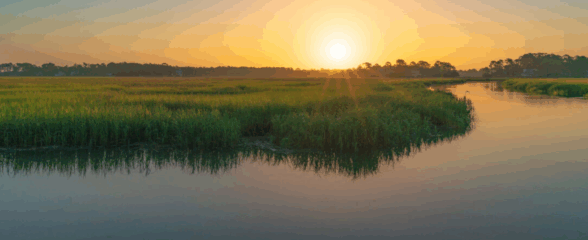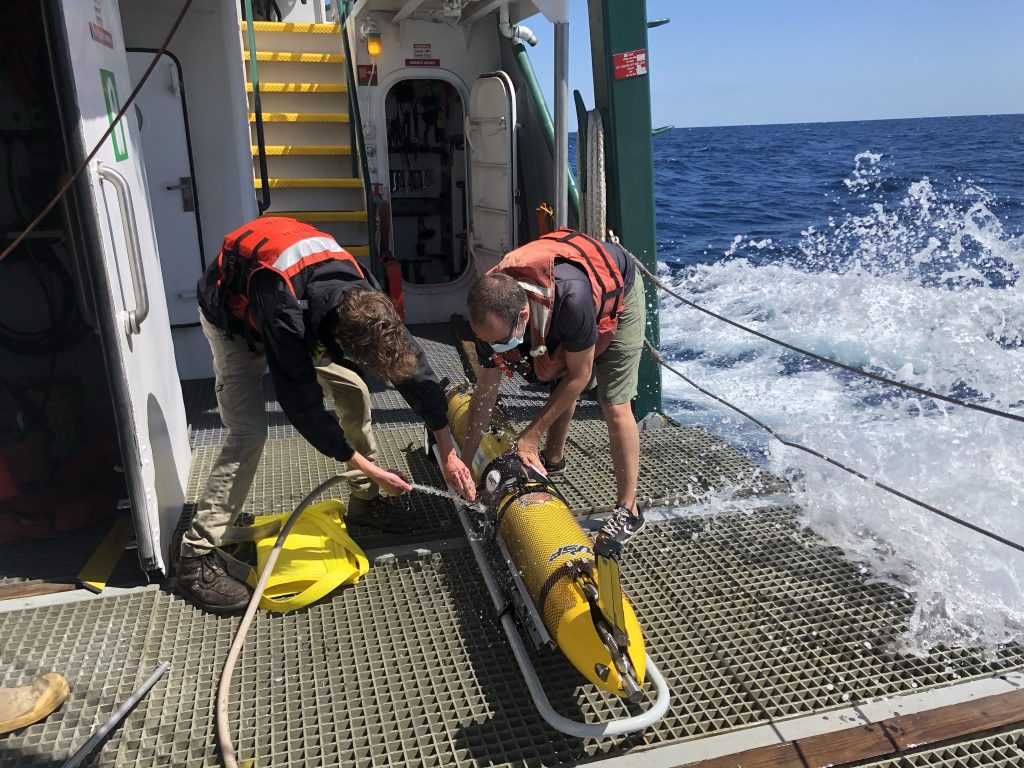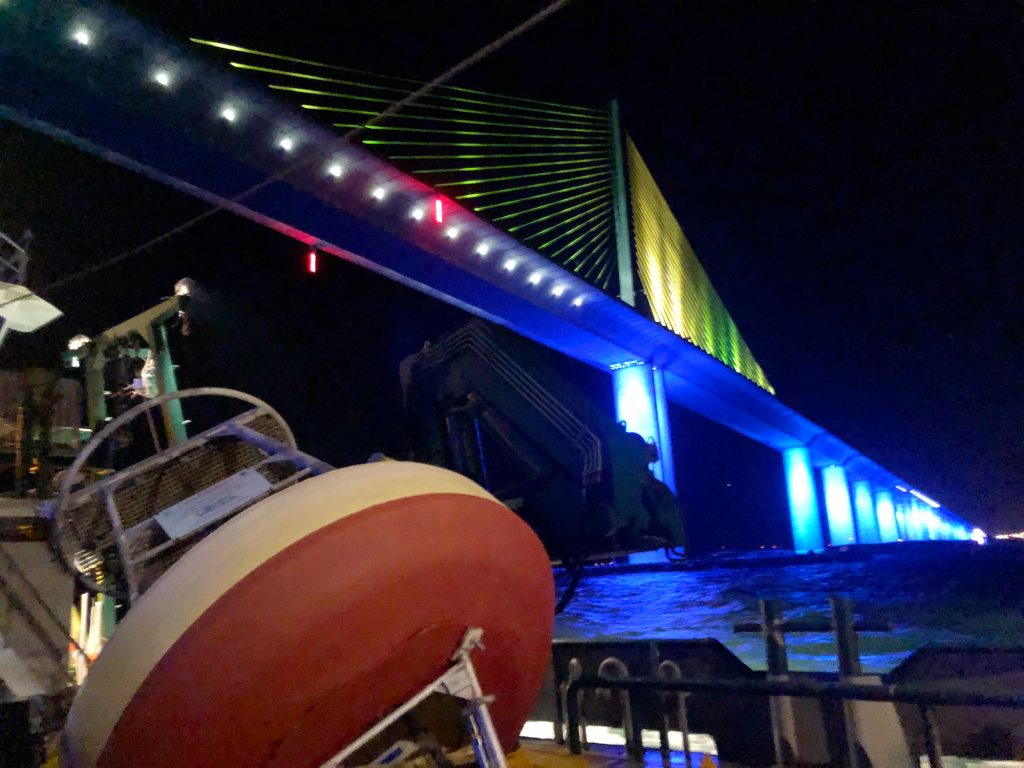In March 2021, the University of South Florida Coastal Ocean Monitoring and Prediction System (USF COMPS) headed to sea on the R/V Weatherbird to replace the C10 buoy off the coast of Sarasota, Florida. This buoy provides real time data on water velocity, wind speed, air temperature, water temperature, salinity, and more. Buoys are our real-time eyes on the water and keep mariners safe by providing the true local conditions, while also providing critical data for weather and circulation modeling.
The team also recovered the Gansett glider for the University of South Florida glider team. The glider mission was funded by FWC Fish and Wildlife Research Institute to collect data for red tide prediction efforts. The glider was equipped with a Conductivity, Temperature, and Depth sensor, fluorometer sensor, a dissolved oxygen sensor, a Vemco receiver to record tagged animal movement data, and an echosounder.
“Seas were rough but with a great captain, crew, and hard-working science party all work was accomplished safely, the new buoy is transmitting all data hourly, and the glider is safe and sound back at home,” said researcher Jay Law, USF COMPS.
On the next USF COMPS research cruise, the team will swap out the C12 buoy. This buoy will also include an acoustic receiver which tracks tagged fish so researchers can better understand seasonal fish migration.. The next buoy swap is scheduled for late spring/early summer, weather permitting.
Thank you to the crew of the R/V Weatherbird and the University of South Florida Ocean Circulation Lab for their teamwork in executing a challenging cruise.
Images and video credited to Jay Law, University of South Florida Coastal Ocean Monitoring and Prediction System
Related news

SECOORA Funding Opportunity Announcement: Letters of Intent Solicitation
SECOORA will submit a coordinated regional proposal in response to the anticipated FY 2026 Implementation of the U.S. Integrated Ocean Observing System (IOOS) funding opportunity. Letters of Intent to be considered for inclusion in SECOORA’s full proposal are due September 9, 2025.

SECOORA Hosts the First Surface Elevation Table (SET) Community of Practice Virtual Workshop
The SECOORA SET Workshop was virtual on July 17, 2025. More than 50 Community of Practice members and stakeholders joined this collaborative workshop to discuss SET monitoring, coastal resilience, and data-driven decision making in the Southeast.

The Sounds of the Sound: Connecting the Port Royal Sound Community with What’s in the Water
Port Royal Sound in Beaufort, South Carolina is a thriving haven for animals, plants, and people. Research focused on listening to the animals that live in the Sound – specifically the resident dolphins – connects the community with the underwater world without having to go swimming.

